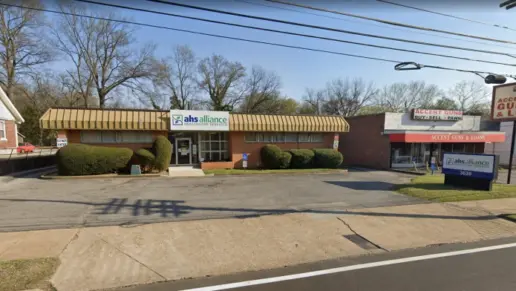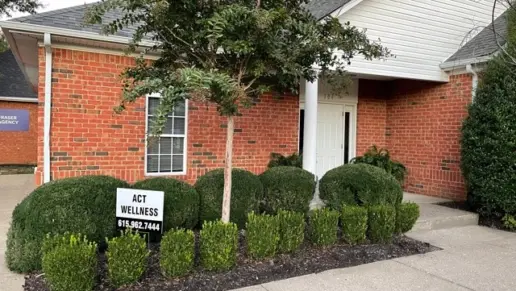My son did excellent in this program! I haven't seen him actually happy in so many years. He really loves it there and just hearing the change in his voice is worth not being able to see him or talk to him much! 5 stars!!!
About Buffalo Valley Main – BVI
Buffalo Valley Inc. is a residential substance use treatment center in Hohenwald, Tennessee. They provide a full continuum of care including medical detox, inpatient rehab and outpatient therapy. They also address co-occurring disorders for those struggling with both addiction and mental illness simultaneously.
The facility is accredited by the Joint Commission which may reflect a commitment to quality care. Specialized transitional living arrangements are available for veterans. Their comprehensive service may include job training/placement, GED training and life skill development. They also offer case management and housing services.
Priority treatment is given to pregnant women who use IV drugs or struggle with substance abuse. They also prioritize individuals who use IV drugs and those in need of medically managed crisis detox or CTC services. Detox basically removes addiction-related toxins from your body in preparation for the main therapy. Their detox involves screening, assessment and stabilization with around the clock monitoring by trained physicians. They may apply medication if necessary to ensure your withdrawal is safe and effective.
Their medical detox lasts five days. You can enroll in their residential rehabilitation afterward. This program involves intensive therapy with 24/7 support by their care personnel. You’ll participate in group therapy and individual counseling to address the root of your addictive behavior. This will also teach you how to strengthen/build relationships, manage negative emotions and create a healthy lifestyle that fosters ongoing recovery. Emphasis is on developing sound coping and relapse prevention strategies that promote sobriety.
You’ll also participate in meditation, relaxation classes and recreational activities like going to the gym. This is in addition to life skills and relapse prevention workshops, motivational interviewing and work therapy. They even offer family counseling and substance abuse education. Psychiatric evaluation, medication management and various psychiatric services are available as needed to support clients with co-occurring conditions.
Upon graduation, you can continue your recovery journey via their intensive outpatient program. This program is a slightly structured but flexible outpatient procedure. It involves about nine hours of group sessions weekly with additional individual counseling as necessary. This is in addition to educational classes, family counseling and 12 step meetings.
They also offer clinical case management and random drug screens. Both morning and evening therapy sessions are available to fit your busy schedule. As an aftercare service, the facility provides transitional housing and connections to community support programs such as AA, NA and DRA for ongoing support.
Rehab Score
Gallery
Accepted Insurance
Other Forms of Payment
Private insurance refers to any kind of healthcare coverage that isn't from the state or federal government. This includes individual and family plans offered by an employer or purchased from the Insurance Marketplace. Every plan will have different requirements and out of pocket costs so be sure to get the full details before you start treatment.
Self-pay involves paying for treatment out of your own pocket. You can use savings or credit, get a personal loan, or receive help from family and friends to fund your treatment. If you don't have insurance or your insurance plan doesn't cover a specific program, self-pay can help ensure you still get the care you need.
Medicaid is a state based program that helps lower-income individuals and families pay for healthcare. Medicaid covers addiction treatment so those enrolled can use their coverage to pay for rehab. When a program accepts Medicaid the client often pays very little or nothing out of their own pocket.
Addiction Treatments
Levels of Care
Treatments
The goal of treatment for alcoholism is abstinence. Those with poor social support, poor motivation, or psychiatric disorders tend to relapse within a few years of treatment. For these people, success is measured by longer periods of abstinence, reduced use of alcohol, better health, and improved social functioning. Recovery and Maintenance are usually based on 12 step programs and AA meetings.
When your day-to-day life is taken over by drug use, this is known as substance use disorder. If you abruptly stop using your drug of choice, you experience withdrawal symptoms. To overcome this cycle, professional drug rehab in Tennessee is usually needed.
Many of those suffering from addiction also suffer from mental or emotional illnesses like schizophrenia, bipolar disorder, depression, or anxiety disorders. Rehab and other substance abuse facilities treating those with a dual diagnosis or co-occurring disorder administer psychiatric treatment to address the person's mental health issue in addition to drug and alcohol rehabilitation.
A combined mental health and substance abuse rehab has the staff and resources available to handle individuals with both mental health and substance abuse issues. It can be challenging to determine where a specific symptom stems from (a mental health issue or an issue related to substance abuse), so mental health and substance abuse professionals are helpful in detangling symptoms and keeping treatment on track.
Opioid rehabs specialize in supporting those recovering from opioid addiction. They treat those suffering from addiction to illegal opioids like heroin, as well as prescription drugs like oxycodone. These centers typically combine both physical as well as mental and emotional support to help stop addiction. Physical support often includes medical detox and subsequent medical support (including medication), and mental support includes in-depth therapy to address the underlying causes of addiction.
Programs

Clinical Services
Cognitive Behavioral Therapy (CBT) is a therapy modality that focuses on the relationship between one's thoughts, feelings, and behaviors. It is used to establish and allow for healthy responses to thoughts and feelings (instead of unhealthy responses, like using drugs or alcohol). CBT has been proven effective for recovering addicts of all kinds, and is used to strengthen a patient's own self-awareness and ability to self-regulate. CBT allows individuals to monitor their own emotional state, become more adept at communicating with others, and manage stress without needing to engage in substance abuse.
Counseling in Tennessee that takes a dialectical behavior therapy approach can last from six to 12 months. During that time, you'll develop skills in the areas of distress tolerance, mindfulness, emotional regulation, and interpersonal effectiveness.
Group therapy is any therapeutic work that happens in a group (not one-on-one). There are a number of different group therapy modalities, including support groups, experiential therapy, psycho-education, and more. Group therapy involves treatment as well as processing interaction between group members.
In individual therapy, a patient meets one-on-one with a trained psychologist or counselor. Therapy is a pivotal part of effective substance abuse treatment, as it often covers root causes of addiction, including challenges faced by the patient in their social, family, and work/school life.
Amenities
-
Residential Setting
-
Gym
-
Yoga Studio
Accreditations

The Joint Commission, formerly known as JCAHO, is a nonprofit organization that accredits rehab organizations and programs. Founded in 1951, the Joint Commision's mission is to improve the quality of patient care and demonstrating the quality of patient care.
Joint Commission Accreditation: Yes
Accreditation Number: 2018
Contact Information
501 Park Avenue South
Hohenwald TN, 38462





